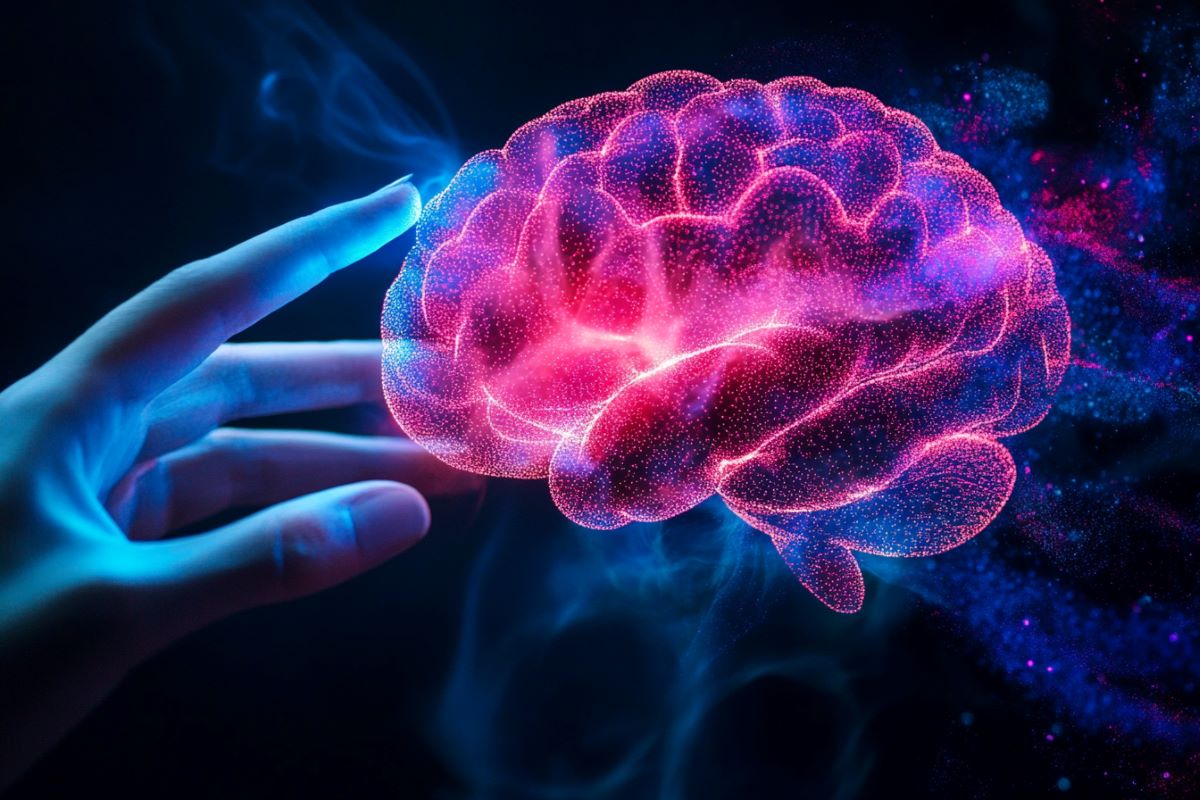The Mediterranean diet, which includes plenty of fruits, vegetables, whole grains, nuts, and olive oil, has been linked to higher scores on cognitive function tests, even in individuals showing signs of dementia, according to a study.Researchers from Rush University in Chicago found that people who followed the Mediterranean diet scored higher on tests of cognitive function, even if they had signs of Alzheimer’s in their brains after they died.Other important factors included not smoking, drinking minimal alcohol, and exercising frequently. The balanced nature of the diet is believed to combat cognitive decline by keeping individuals full for longer periods, reducing the likelihood of snacking on high-calorie junk food. This helps maintain stable and healthy weight, reducing the risk of obesity-related blood vessel problems that can impact brain function. Some research also suggests that the abundance of fruit and vegetables in the diet plays a role, as they are high in brain-protecting antioxidants.  A large body of research has designated the Mediterranean diet as the gold-standard eating regimeThe researchers used data from the Rush Memory and Aging Project, a study with autopsy data from 1997 to 2022 and up to 24 years of follow-up.They looked at 586 participants who had died at an average age of 91.A healthy lifestyle score was developed for each participant based on self-reported factors, including smoking, weekly exercise, alcohol consumption, adherence to a Mediterranean diet, and cognitive activity score. The overall healthy lifestyle score ranged from one to five, with higher scores reflecting a healthier lifestyle.Researchers compared this to a cognitive score from tests conducted less than a year before the participants’ death.In the Rush Memory and Aging Project, participants’ cognitive function was evaluated every year with 19 tests.A higher lifestyle score was associated with better cognitive functioning close to death.After they died, participants’ brains were removed and examined for signs of Alzheimer’s such as amyloid beta and tau tangles.Even if participants’ brains showed signs of Alzheimer’s, their healthy lifestyle still appeared to protect them somewhat from cognitive decline, the study showed.The study was published in the journal JAMA Neurology. The Mediterranean diet is composed of plenty of fruit, vegetables, whole grains, legumes, nuts, and olive oil.A large body of research has designated the Mediterranean diet as the gold-standard eating regime.A study published last year found that switching to a Mediterranean diet from the normal Western diet can help individuals live longer, and the earlier in life the diet is adopted, the greater the benefits. Even starting the diet at age 60 can potentially extend life by eight years, while adopting it at age 80 can still lead to an additional three years of life.Dementia is the general term for a group of conditions associated with loss of memory, language, and judgment.Alzheimer’s is the most common form of the disease, affecting more than six million Americans, while Lewy body dementia is the second most common type, with roughly one million living with the condition. What is Alzheimer’s and how is it treated? Alzheimer’s disease is a progressive, degenerative disease of the brain in which the build-up of abnormal proteins causes nerve cells to die.This disrupts the transmitters that carry messages, and causes the brain to shrink. More than 5million people suffer from the disease in the US, where it is the 6th leading cause of death, and more than 1million Britons have it.WHAT HAPPENS?As brain cells die, the functions they provide are lost. That includes memory, orientation and the ability to think and reason. The progress of the disease is slow and gradual. On average, patients live five to seven years after diagnosis, but some may live for ten to 15 years.EARLY SYMPTOMS:Loss of short-term memoryDisorientationBehavioral changesMood swingsDifficulties dealing with money or making a phone call LATER SYMPTOMS:Severe memory loss, forgetting close family members, familiar objects or placesBecoming anxious and frustrated over inability to make sense of the world, leading to aggressive behavior Eventually lose ability to walkMay have problems eating The majority will eventually need 24-hour care HOW IT IS TREATED?There is no known cure for Alzheimer’s disease.However, some treatments are available that help alleviate some of the symptoms.One of these is Acetylcholinesterase inhibitors which help brain cells communicate to one another. Another is menantine which works by blocking a chemical called glutamate that can build-up in the brains of people with Alzheimer’s disease inhibiting mental function. As the disease progresses Alzheimer’s patients can start displaying aggressive behaviour and/or may suffer from depression. Drugs can be provided to help mitigate these symptoms. Other non-pharmaceutical treatments like mental training to improve memory helping combat the one aspect of Alzheimer’s disease is also recommended. Source: Alzheimer’s Association and the NHS
A large body of research has designated the Mediterranean diet as the gold-standard eating regimeThe researchers used data from the Rush Memory and Aging Project, a study with autopsy data from 1997 to 2022 and up to 24 years of follow-up.They looked at 586 participants who had died at an average age of 91.A healthy lifestyle score was developed for each participant based on self-reported factors, including smoking, weekly exercise, alcohol consumption, adherence to a Mediterranean diet, and cognitive activity score. The overall healthy lifestyle score ranged from one to five, with higher scores reflecting a healthier lifestyle.Researchers compared this to a cognitive score from tests conducted less than a year before the participants’ death.In the Rush Memory and Aging Project, participants’ cognitive function was evaluated every year with 19 tests.A higher lifestyle score was associated with better cognitive functioning close to death.After they died, participants’ brains were removed and examined for signs of Alzheimer’s such as amyloid beta and tau tangles.Even if participants’ brains showed signs of Alzheimer’s, their healthy lifestyle still appeared to protect them somewhat from cognitive decline, the study showed.The study was published in the journal JAMA Neurology. The Mediterranean diet is composed of plenty of fruit, vegetables, whole grains, legumes, nuts, and olive oil.A large body of research has designated the Mediterranean diet as the gold-standard eating regime.A study published last year found that switching to a Mediterranean diet from the normal Western diet can help individuals live longer, and the earlier in life the diet is adopted, the greater the benefits. Even starting the diet at age 60 can potentially extend life by eight years, while adopting it at age 80 can still lead to an additional three years of life.Dementia is the general term for a group of conditions associated with loss of memory, language, and judgment.Alzheimer’s is the most common form of the disease, affecting more than six million Americans, while Lewy body dementia is the second most common type, with roughly one million living with the condition. What is Alzheimer’s and how is it treated? Alzheimer’s disease is a progressive, degenerative disease of the brain in which the build-up of abnormal proteins causes nerve cells to die.This disrupts the transmitters that carry messages, and causes the brain to shrink. More than 5million people suffer from the disease in the US, where it is the 6th leading cause of death, and more than 1million Britons have it.WHAT HAPPENS?As brain cells die, the functions they provide are lost. That includes memory, orientation and the ability to think and reason. The progress of the disease is slow and gradual. On average, patients live five to seven years after diagnosis, but some may live for ten to 15 years.EARLY SYMPTOMS:Loss of short-term memoryDisorientationBehavioral changesMood swingsDifficulties dealing with money or making a phone call LATER SYMPTOMS:Severe memory loss, forgetting close family members, familiar objects or placesBecoming anxious and frustrated over inability to make sense of the world, leading to aggressive behavior Eventually lose ability to walkMay have problems eating The majority will eventually need 24-hour care HOW IT IS TREATED?There is no known cure for Alzheimer’s disease.However, some treatments are available that help alleviate some of the symptoms.One of these is Acetylcholinesterase inhibitors which help brain cells communicate to one another. Another is menantine which works by blocking a chemical called glutamate that can build-up in the brains of people with Alzheimer’s disease inhibiting mental function. As the disease progresses Alzheimer’s patients can start displaying aggressive behaviour and/or may suffer from depression. Drugs can be provided to help mitigate these symptoms. Other non-pharmaceutical treatments like mental training to improve memory helping combat the one aspect of Alzheimer’s disease is also recommended. Source: Alzheimer’s Association and the NHS
Share or comment on this article:
Mediterranean diet can keep your mind sharp in old age – even if your brain show signs of dementia, study finds













